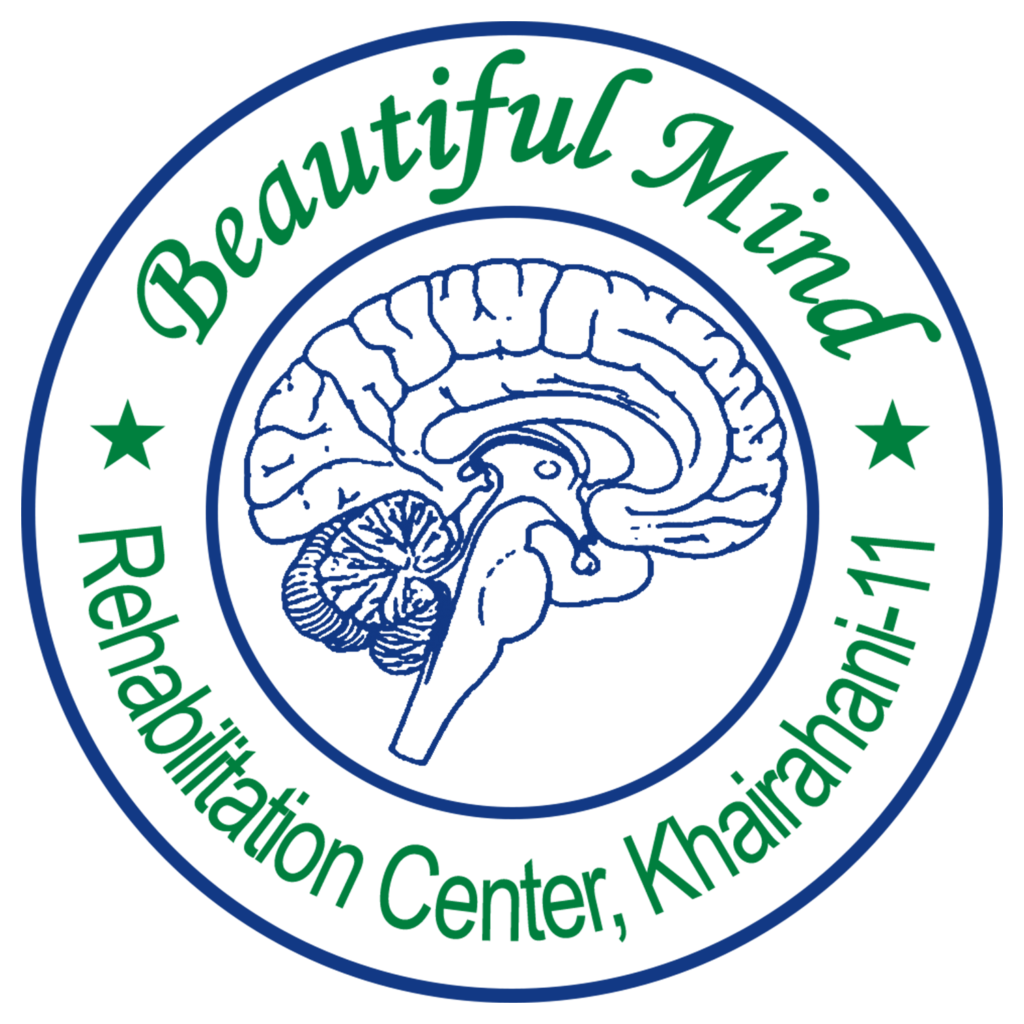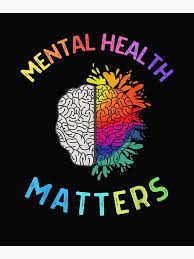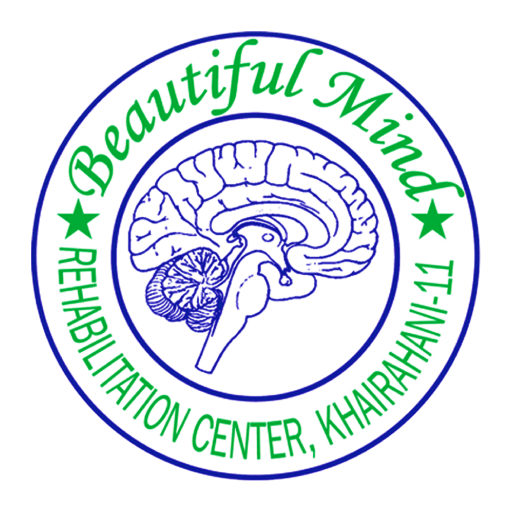Why Mental Health Awareness in Nepal Is More Important Than Ever
By Beautiful Mind Institute of Psychiatry – Khaireni-11, Gaidaha, Parsa, Chitwan
Introduction: A Silent Crisis That Can No Longer Be Ignored | Why Mental Health Awareness in Nepal Is More Important Than Ever
Why Mental Health Awareness in Nepal Is More Important Than Ever: In Nepal, we often take pride in our resilience. Whether it’s rebuilding after earthquakes, supporting each other during the pandemic, or enduring the daily challenges of rural life, Nepalis have shown incredible strength.
But there is a quieter battle taking place — one that does not leave visible scars yet affects millions: the battle for mental health. Anxiety, depression, trauma, substance abuse, and stress-related disorders are on the rise, but the conversations around them are still shrouded in stigma and silence.
At Beautiful Mind Institute of Psychiatry, we believe that mental health awareness is not just a health issue — it’s a societal necessity. And right now, it is more urgent than ever.

The Growing Mental Health Challenge in Nepal
1. Rising Stress in Modern Nepali Life
While Nepal’s landscapes remain serene, life here is rapidly changing. Economic pressures, migration, unemployment, and urban overcrowding are creating mental health stressors our parents never faced. Add to that social media’s constant comparison culture, and you have a recipe for anxiety, low self-esteem, and burnout.
2. Impact of Disasters and Trauma
Natural disasters like the 2015 earthquake left deep psychological wounds. Many survivors still live with post-traumatic stress disorder (PTSD), nightmares, and unresolved grief. Unfortunately, in rural areas, mental health services are scarce, leaving trauma untreated for years.
3. The Shadow of Stigma
In many Nepali households, admitting to mental distress is still seen as weakness or “a problem you should just ignore.” As a result, people suffer in silence rather than seek professional help — often until their condition becomes severe.
Why Mental Health Awareness Is Crucial Right Now
1. Early Intervention Saves Lives
Depression and anxiety, if untreated, can escalate to suicidal thoughts. Awareness helps people recognize symptoms early and encourages them to reach out before a crisis point.
2. Mental Health Is Linked to Physical Health
Heart disease, diabetes, chronic pain — all can be worsened by untreated mental health conditions. When the mind suffers, the body follows. Awareness can break this cycle by encouraging holistic care.
3. Stronger Communities, Stronger Nepal
Mental wellness fuels productivity, better relationships, and community harmony. An emotionally healthy society is more resilient to both personal and national challenges.

Signs and Symptoms People Shouldn’t Ignore
Awareness starts with knowing what to look for. At Beautiful Mind, we teach people to pay attention to:
- Persistent sadness or hopelessness
- Unexplained physical aches and fatigue
- Irritability or sudden mood changes
- Withdrawal from family, friends, and activities
- Changes in eating or sleeping patterns
- Difficulty focusing or making decisions
- Loss of interest in things once enjoyed
- Thoughts of self-harm or suicide
Breaking Stigma Through Education
1. Community Conversations
Hosting open discussions in villages, schools, and workplaces helps normalize conversations about mental health.
2. Media and Storytelling
When local celebrities, teachers, and community leaders speak openly about mental health struggles, it inspires others to do the same.
3. School-Based Awareness Programs
Teaching children about emotions, stress, and coping strategies from a young age builds resilience for life.

The Role of Beautiful Mind Institute of Psychiatry
Based in Khaireni-11, Gaidaha, Parsa, Chitwan, our mission is to provide holistic, accessible, and stigma-free mental health care. We combine:
- Evidence-based psychiatry (diagnosis & medication management)
- Psychosocial counseling
- Occupational therapy
- Lifestyle and stress management
- Community outreach & awareness campaigns
We believe healing should address the mind, body, and social environment together.
How We’re Driving Awareness Across Nepal
- Free Mental Health Camps in rural areas
- Collaboration with schools to train teachers in emotional first aid
- Social media campaigns to debunk myths about mental illness
- Workshops for workplaces on stress management and employee well-being
- Family counseling programs to help relatives support loved ones effectively
What You Can Do to Support Mental Health Awareness
- Speak up when you or someone you know is struggling
- Share reliable information on social media
- Attend community workshops
- Encourage friends and family to seek professional help
- Avoid judgmental language when talking about mental illness
A Vision for the Future
Imagine a Nepal where no one suffers in silence. Where children learn about mental health in school as naturally as math and science. Where seeking therapy is as normal as visiting a doctor for a fever.
That is the future Beautiful Mind Institute of Psychiatry is working towards — but it will take all of us to make it happen.
Conclusion: Awareness Is the First Step to Healing
Mental health awareness in Nepal is not a luxury. It is a necessity for our nation’s well-being, productivity, and resilience. The time to act is now — because every day we delay, more people slip through the cracks.
If you or someone you love is struggling, remember: help is available, healing is possible, and hope is real.
📍 Visit Us: Khaireni-11, Gaidaha, Parsa, Chitwan, Nepal
📞 Call Us: +977-98550945843 (Hira Ale Magar) | +977-9855094582 (Ansuda Poudel) | +977-9855094584 (Kamal Sharma Bhusal)
🌐 Website: https://beautifulmind.com.np
FAQs with Detailed Answers
1. Why is mental health awareness important in Nepal right now?
Mental health awareness is vital in Nepal today because rates of depression, anxiety, substance abuse, and suicide are rising, especially among youth. The country is facing new social and economic pressures, and without awareness, people may not recognize symptoms early or seek help in time.
2. How does stigma affect mental health in Nepal?
Stigma prevents people from openly discussing their struggles or seeking professional help. It fuels shame, isolation, and misinformation, which can worsen mental health conditions and lead to delayed treatment or crisis situations.
3. What are common mental health issues in Nepal?
Common issues include depression, anxiety disorders, PTSD (post-traumatic stress disorder), substance use disorders, bipolar disorder, and schizophrenia. Stress-related illnesses are also increasing, especially in urban areas.
4. How can mental health awareness save lives?
By recognizing symptoms early, individuals can seek timely help, which prevents conditions from worsening. This early intervention can reduce suicide rates, improve recovery outcomes, and enhance overall quality of life.
5. How does Beautiful Mind Institute of Psychiatry promote awareness?
We run free mental health camps, conduct school programs, train teachers, organize community workshops, and use social media to share facts, debunk myths, and encourage open conversations about mental health.
6. What role does education play in breaking stigma?
Education helps people understand that mental health issues are medical conditions, not personal weaknesses. It also teaches coping skills, encourages empathy, and makes seeking help socially acceptable.
7. Can mental health problems affect physical health?
Yes. Chronic stress, depression, and anxiety can weaken the immune system, raise blood pressure, worsen heart disease, and even impact digestion. The mind and body are deeply connected.
8. What signs of mental distress should people in Nepal look for?
Watch for persistent sadness, irritability, changes in appetite or sleep, withdrawal from social life, difficulty focusing, unexplained aches, and loss of interest in daily activities.
9. How has COVID-19 impacted mental health in Nepal?
The pandemic increased isolation, job loss, uncertainty, and grief, all of which have heightened stress, anxiety, and depression rates. Many people are still dealing with its long-term emotional effects.
10. Are mental health services available in rural Nepal?
Access is limited, but organizations like Beautiful Mind Institute are working to bridge the gap by offering mobile clinics, telepsychiatry, and community outreach programs.
11. How do cultural beliefs shape mental health attitudes in Nepal?
Traditional beliefs sometimes link mental illness to spiritual causes, leading people to seek only religious or traditional healing. While spiritual support is valuable, it should be combined with medical care when needed.
12. Can awareness programs in schools help?
Absolutely. Teaching children about emotions, stress management, and mental health from a young age builds lifelong resilience and reduces stigma for future generations.
13. What role do families play in mental health recovery?
Families are crucial. Supportive, understanding family environments help patients feel safe, adhere to treatment, and recover faster. Families can also spot early warning signs.
14. Why do many people hide their mental struggles in Nepal?
Fear of judgment, social gossip, and discrimination at work or school often stop people from speaking up. In some cases, lack of awareness about available treatments also plays a role.
15. Is therapy effective for Nepali patients?
Yes. Counseling and psychotherapy have proven effective for treating depression, anxiety, trauma, and relationship issues. When adapted to cultural contexts, they can be life-changing.
16. What is the link between poverty and mental health in Nepal?
Poverty increases stress, limits access to healthcare, and creates unstable living conditions, all of which raise the risk of mental illness. Addressing financial insecurity can improve emotional well-being.
17. Can traditional healing and psychiatry work together?
Yes. Many people benefit from a combination of traditional practices (like meditation or spiritual rituals) and modern psychiatric care, provided both are respected and coordinated.
18. How does workplace stress affect Nepalis?
Work-related pressure, lack of work-life balance, and job insecurity can trigger burnout, anxiety, and depression. Awareness programs in workplaces help create healthier environments.
19. How do you know when to seek professional help?
If emotional distress interferes with daily life, relationships, or work for more than two weeks, or if there are thoughts of self-harm, it’s important to consult a mental health professional immediately.
20. Can mental health problems be fully cured?
Some can be fully resolved, while others can be managed with ongoing care. With the right combination of therapy, medication, and lifestyle changes, many people lead fulfilling lives.
21. How does social media affect mental health in Nepal?
While it connects people, excessive use can fuel comparison, cyberbullying, and unrealistic expectations, contributing to anxiety and low self-esteem.
22. What is the role of government in mental health awareness?
The government can fund awareness campaigns, integrate mental health into primary healthcare, and ensure psychiatric services are available nationwide.
23. Are youth more at risk for mental health problems in Nepal?
Yes. Academic pressure, unemployment, relationship stress, and exposure to social media trends make youth particularly vulnerable to mental health struggles.
24. How does Beautiful Mind ensure privacy for patients?
We follow strict confidentiality protocols, ensuring that patient information and discussions remain private and secure.
25. How do awareness campaigns change community attitudes?
They replace fear and misunderstanding with knowledge and empathy, leading to more supportive environments for those in need.
26. Can lifestyle changes improve mental health?
Yes. Regular exercise, healthy eating, good sleep, mindfulness, and meaningful social connections all play a big role in mental well-being.
27. What is holistic mental health care?
Holistic care treats the person as a whole — mind, body, and environment — using a mix of psychiatry, therapy, lifestyle adjustments, and community support.
28. How can religious leaders support mental health awareness?
By speaking openly about mental health from a place of compassion, religious leaders can encourage followers to seek both spiritual and medical help.
29. Does Beautiful Mind offer online consultations?
Yes. To reach those in remote areas or abroad, we provide secure telepsychiatry and online counseling sessions.
30. How can I support Beautiful Mind’s mission?
You can attend awareness programs, share educational materials, volunteer, or donate to help fund free mental health services in underserved areas.










